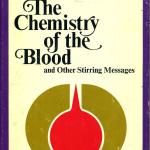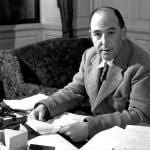UPDATE
In January 2008, the following post was identified as the 6th all-time most popular post with readers of this blog. The 7th most read post was “What is a Reformed Charismatic?“
As stated below, this post summarized my interview with this gift to the global Church—Dr. Wayne Grudem. Individual segments of the interview would have also made the top 30 in their own right, as would my review of Grudem’s supreme Systematic Theology.
***************
If there is one thing that stands out from this whole interview, it’s the fact that egalitarians simply don’t understand what complementarians like Wayne Grudem are saying. The assumption made by some people seems at least to me to be that anyone who believes in a husband leading and taking responsibility for his wife is effectively a woman-hater. I hope that particular view is indeed rare, but we need to do everything we can to ensure that we are communicating across the divides caused in part by us using words differently.
This quote sums up the man, Dr. Grudem, in my mind, and reveals that – far from being the troublemaker some people think he is – this is a man of deep love and humility. Bizarrely to me given the way I understand the word, some poeple even held this quote up as an example of Dr. Grudem “submitting” to his wife. In reality, it is a great example of him taking the responsibility for a decision that would help his wife and simultaneously hurt his career. Perhaps if this was what every husband meant by leading his wife, the whole feminist issue would evaporate:
“We moved to Phoenix Seminary in Arizona in 2001, primarily because of Margaret’s health. She had been experiencing chronic pain after an auto accident a number of years earlier, and we found that the pain was aggravated by cold and humidity. Well, the Chicago area is cold in the winter and humid in the summer!After a couple of trips to Arizona, which is hot and dry, we realized that Margaret felt much better there. So I phoned the academic dean at Phoenix Seminary and asked if there might possibly be a job opportunity there for me. It is a long and wonderful story of the Lord’s guidance and provision, but the result is that we have been here since June of 2001, Margaret has felt much better, and I also love the seminary where I am now teaching. So we are thankful for God’s blessings in many ways. I am thankful to the Lord that when we were making a decision about whether to move to Phoenix, on the very day we were talking and praying about it, I came to Ephesians 5:28 in my regular schedule of daily Bible reading, and the Lord used this verse strongly in my own decision process: “In the same way husbands should love their wives as their own bodies. He who loves his wife loves himself.” After reading that, I thought it was important for me to move for the sake of Margaret’s physical body, her physical health.
Dr. Grudem’s answer to my question about his book, Systematic Theology, further demonstrated his humility, but in other ways was also quite revealing. A big difference between men like Grudem and certain other theologians is that he believes it is his task to make complex theological truths understandable by ordinary “lay” people without theological degrees – people like me. I cannot agree more, as quite frankly, if a theologian cannot write about his ideas and the evidence he bases them on in a way that a person of reasonable education can understand, then there is something very wrong. I thank God for men like Grudem who can do just that.
“I am surprised, and thankful to God for the way the book seems to continue to be a blessing to people – and not just to pastors and seminary students, but lots of other Christians from all walks of life. As you know, I believe that God intended His Word to be understood, not just by specialists, but also by ordinary Christians. The “blessed man” in Psalm 1 is held up as an example for all of us: “His delight is in the law of the LORD, and on his law he meditates day and night.” (Psalm 1:2)”
Part 3 – Evangelical Feminism – A New Path to Liberalism
At first sight Dr. Grudem’s charge that it is inevitable that an evangelical feminist positon will erode confidence in the Bible seemed unduly harsh to many readers. If there was one quote that made his point well, it was this one. In its context he is essentially explaining that it just will not do for us to effectively remove certain passages from the canon of Scripture essentially just because we do not like them – relabeling them as “disputed.”
“If I come to a pastor who is wanting to put women on the elder board, or to ordain women as pastors, and I say, “1 Timothy 2:11–14 prohibits that,” and he just says, “I don’t want to hear about that verse because it’s disputed,” then he has really decided that he won’t let that verse speak to the controversy. But that is the most central passage in the whole dispute, the one that speaks most directly to the issue! If we refuse to be subject to passages that speak most directly to an issue, then we are almost guaranteed to come to the wrong decision. I’m not sure if I can think of a better way to come to a wrong decision than excluding from the discussion the verses that speak most directly to an issue.”
2/interview-wayne-grudem-part-four.htm”>Part 4 – Ethical Trajectories, Feminism, and Homosexuality
Advocates of evangelical feminism argue for an “ethical trajectory” approach to Scripture, appealing to slavery as an example, shortly to be followed in the debates on the role of women. Grudem made a robust attempt to totally debunk that argument:
“Now today, what worries me about these “trajectory hermeneutic” advocates is that they seem unaware of this entire history of biblical arguments against slavery, and they wrongly assume that the Bible actually supports slavery of the kind seen in the horrible abuses in America in the 18th and 19th centuries. This is preposterous. To say that the Bible supports such evils would be to say that the Bible, at the time of the New Testament, supported things that were morally evil, and I am simply not willing to do that.”
Dr. Grudem’s patient, yet methodical, nature comes out in this detailed response to some of the comment critics. Already by this point I am beginning to be irritated rather than helped by the tone of some of the comments. Grudem also shows he is far from being a walk-over in this reply. I think it is a model of how to have a robust disagreement with someone without being rude to them.
Part 5 – Must a Woman Always Remain Silent in Church?
Although anxious to point out that he does not believe that Scripture intends for women to remain totally silent at all times in church, he reserves some strong words for those who want to say that a woman should be allowed to teach provided they are “under the authority” of a male elder.
“I don’t think a pastor can give a woman “permission” to do Bible teaching before the church, because the Bible says not to do that. Would we say a pastor, or a board of elders, could give a woman “permission” to violate the command, “You should not steal”, or to violate any other command of Scripture? No pastor or elder board has authority to give permission to anyone to disobey the Bible. It’s God’s Word and we need to obey it.
Part 6 – Did Steve Chalke Blaspheme About the Atonement?
If you are new to the debate about prominent UK evangelical leader, Steve Chalkes’ criticism of the notion of Jesus’ death being required to take the punishment for our sin, then this is the jumping off post for you – there are links to more details about the whole issue and a very interesting debate. Dr. Grudem was impacted by reading the comments section, for as a direct result he made a retraction of the word “blasphemy” afterwards. He did not, however, retract his agreement with John Piper’s serious concerns about this issue:
“Evangelicals in the academic world battled against liberals in scholarly writings about this issue fifty years ago, and I think that evangelicals like Leon Morris won the argument and won the theological battle. Now Chalke is giving away the hard-won victory. He is giving away the heart of the Gospel. I would never agree to give my approval to anyone who denies penal substitutionary atonement to be an elder at a church I attended, or to be a pastor or Bible teacher, or to teach at a theological seminary where I had influence on the appointment.”
Part 7 – Things We Can Agree to Disagree About?
Dr. Grudem appears to be very clear about his theological triage – explaining that he believes that some issues are much more important than others.
“I’m thankful that believers who differ on the issue of baptism can still have wonderful fellowship with one another across denominational lines, and can have respect for each other’s sincerely held views. I certainly do not put the question of baptism in the same category as the denial of penal substitutionary atonement which you mentioned [yesterday] because that seems to me to be a denial of the heart of the Gospel. And, as I mentioned, it seems to me that evangelical feminism involves, implicitly at least, a denial of the authority of the Bible. But differing views on baptism or the millennium do not have serious consequences of that type”
Justin Taylor has highlighted a section of this post in which Grudem explains he is reconsidering his position on baptism – this has led to an interesting discussion over at his place.
Dr. Grudem is optimistic about the immediate future for the church. Sitting where I am, I tend to agree with him.
“I’m very hopeful. I see indications that God is bringing renewal and revival (as well as exposing sin and “cleaning house”) in many churches around the world. I am hoping that God will yet bring a great world-wide revival in our lifetimes, with many millions of people suddenly turning to Christ in genuine faith.”
As we drew to an end exploring one of the issues Dr. Grudem and I disagree on, he came back to a point he made much earlier in the interview – it was a point that encouraged me as a preacher and blogger with no theological degrees.
“. . . it is always wise to have a governing structure where the highest governing offices in the church and the highest positions of influence are open to lay people as well as ordained people. The denominations where only clergy have the highest of authority seem to be the ones that are never able to be brought back once they drift into liberalism bec
ause the ordinary lay people who have common sense and are reading their Bibles every day don’t have any way to regain control of a denomination that has gone astray if it has that kind of structure.”
So, the hope for the church is bright if brilliant theologians like Dr. Grudem and jobbing preachers in local churches can forge a partnership. Whilst Dr. Grudem cannot possibly personally relate to the millions of preachers there are in the world, through the Internet something approaching a feeling of partnership can arise. I have had an amazing time interacting with him, and sharing those interactions with you. I hope that you, too, feel a bit more as though you know the man, as well as the theologian, as a result of this interview.














